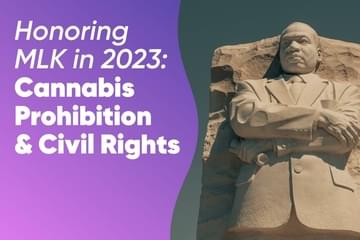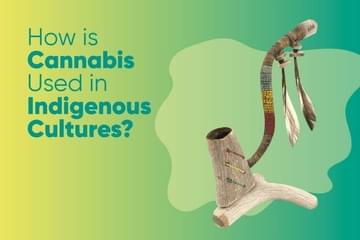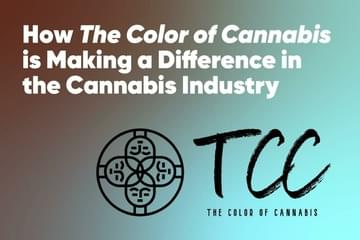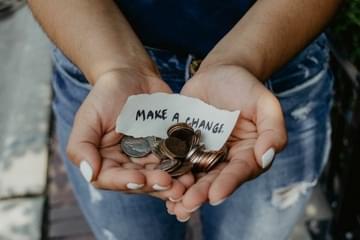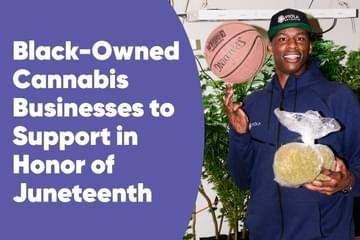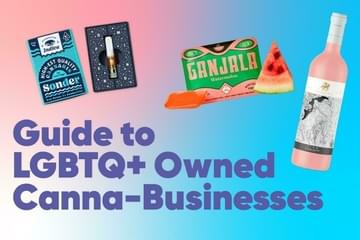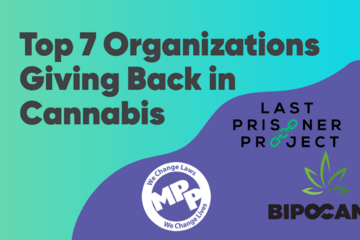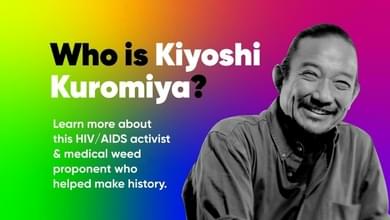
Kiyoshi Kuromiya: LGBTQ+ & Cannabis Activist
Published on 6/29/22
On June 4, 2022, Google showcased one of their much-loved Google Doodles of an influential LGBTQ+, legal cannabis, and anti-war advocate named Kiyoshi Kuromiya. The doodle featured a mural of his likeness on the brick facade of the now-famous National LGBTQ Wall of Honor at the Stonewall National Monument in New York City, alongside a massive LGBTQ+ flag and an image of his student advocacy work. The doodle commemorated the day that Kuromiya was inducted onto the Wall of Honor, a mainstream and lasting recognition of his important work as a civil rights, anti-war, gay liberation activist, and his vital HIV/AIDS education.
We wanted to shine a brighter light on this pro-cannabis icon, especially during Pride Month, and introduce our readers to someone worth knowing. This article will highlight his life, the causes he so fervently and effectively advocated for, and how his lasting legacy has impacted and is still impacting people today.
Let's get into it, shall we?
Early Life and Foundations of Identity
The son of two second-generation Japanese Americans, Kiyoshi was born in a Japanese internment camp called Heart Moutain Internment Camp in Wyoming on May 9, 1943. After this shameful period of U.S. history came to a close in 1946, Kiyoshi spent the rest of his youth in Moravia, California. However, Kiyoshi knew that he was different from a young age.
Coming out to his parents as gay at only the age of 8 or 9, despite not even knowing the terminology to describe what he was feeling, Kiyoshi was forced to utilize the public library to learn what homosexuality was in the first place. At that age, he had never even heard the word "gay" before, but he knew and understood that this identity was "very important to him." This lack of information would inform his advocacy work later in his life, working under the motto of "knowledge is power" and working hard to ensure accurate information was available to the masses.
Like gay men who grew up at the time, Kiyoshi had many negative interactions with law enforcement due to his sexuality, even spending three days in juvenile hall as punishment for sex in a public park, one of the only places gay folks could reliably interact with one another at the time. Kiyoshi recalled this arrest as a formative moment for him, making him feel like a criminal just for being who he was and forcing him to be secretive about his sex life.
When it was time for Kiyoshi to go to college in 1961, he decided to attend the University of Philadelphia. He later revealed he chose Philly because of the city's moniker as "City of Brotherly Love." Despite choosing architecture as his major, Kiyoshi instead spent most of his time increasing his involvement in human rights activities during the early 1960s stemmed mainly from his sexual orientation and his feeling that the University of Pennsylvania was very closeted.
A Track Record of Advocacy
There are very few people who can claim to be on the right side of history as often as Kiyoshi. During his first year at Penn, he was already attending Congress of Racial Equity (CORE) diner sit-ins in Maryland and even met Dr. Martin Luther King after his now-famous "I Have a Dream" speech. Kiyoshi continued to work with King for years to come, eventually marching alongside him in Alabama and becoming so close with the King family that he helped care for the family's children after their father's assassination in 1968.
Kiyoshi was also fervently anti-war. He organized Penn's largest antiwar demonstration in the school's history, advocated against the use of napalm during the Vietnamese War, and even collaborated with Abbie Hoffman.
Alongside his advocacy for racial equality and antiwar sentiments, he simultaneously fought for the LGBTQ+ community as well. Kiyoshi came out as gay to the public in 1965 during a protest at Independence Hall, one of the first organized pro-LBGTQ+ liberation movements to push for equal rights for homosexuals. He co-founded the Gay Liberation Front following the 1969 Stonewall Riots, collaborated with the Black Panthers as an openly gay delegate for their 1970 Black Panther Party convention at Temple University, and started Penn's first openly gay on-campus organization, the Gay Coffee Hour.
From there, Kiyoshi started working with HIV/AIDS advocates in the early 1980s with ACT UP, founding the Philadelphia chapter. After being diagnosed with AIDS in 1989, he only doubled down on his advocacy work for the cause. Inspired by the lack of good quality information about his sexuality in his youth, Kiyoshi dedicated himself to informing and teaching those suffering from HIV/AIDS what they were dealing with. As a result, he created the ACT UP Standards of Care, the first of its kind for those with HIV. Kiyoshi went as far as the Supreme Court in 1997, advocating for the expansion of freedom of speech rights protections for the circulation of sexually explicit information about AIDS on the internet.
On top of all this advocacy, Kiyoshi fought for medical cannabis rights as well. Kuromiya was the leading plaintiff in a 1999 Supreme Court case pushing for the ability of AIDS/HIV patients to use medical cannabis to help ease and alleviate their symptoms. He even went as far as running a marijuana buyer's club, providing free cannabis products to dozens of people with AIDS in the Philadelphia area. He was a pioneer when it comes to medical cannabis advocacy, one of the first of his kind outside of the West Coast, setting the precedent for many of the caregivers we see throughout modern-day medical cannabis legal states.
Death and Lasting Legacy
Sadly, Kuromiya's life was cut short due to health complications in 2000, only days after his 57th birthday. After overcoming a bout with metastatic lung cancer in the 70s, the cancer returned. In combination with his weakened system due to AIDS, it was too much to handle this time. A life cut sadly short after he was able to accomplish so, so much.
In his wake, however, he set the foundation for the modern-day medical cannabis caregiver we see in 39 states and U.S. territories, along with his countless accomplishments as an advocate for LGBTQ+ rights, antiwar sentiments, and social justice initiatives like racial equity. He truly was a man ahead of his time.
That's why this Pride Month, we wanted to highlight him. Not only for his accomplishments in cannabis advocacy but his other work as well. In the two decades since his death, more than half of the states and territories in the U.S. have approved some type of medical program, nearly 5.5 million patients have been officially granted cards of their own, and more states and programs are considering legalization by the year. To put it simply, he was ahead of his time and stands today as a testament to what a good advocate for a cause looks like!









